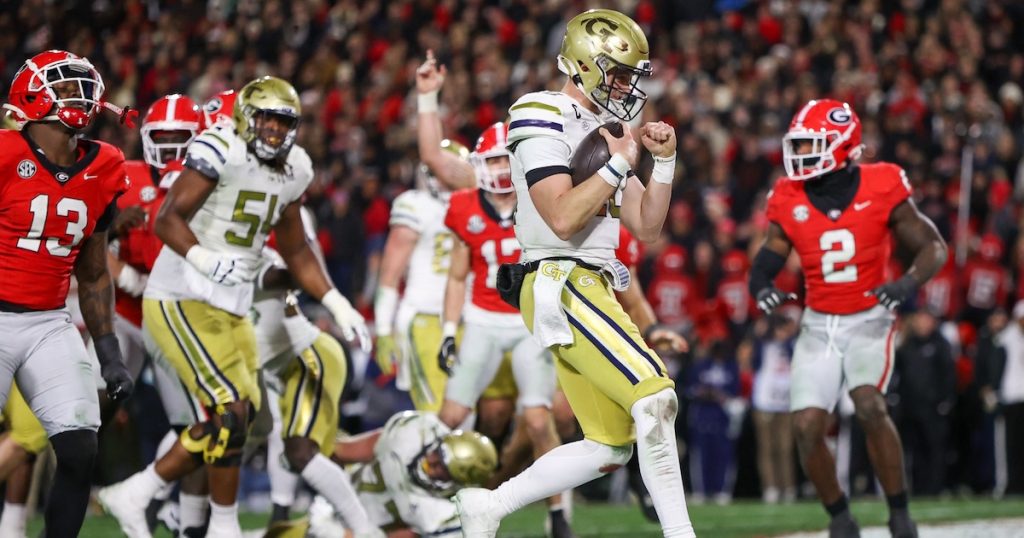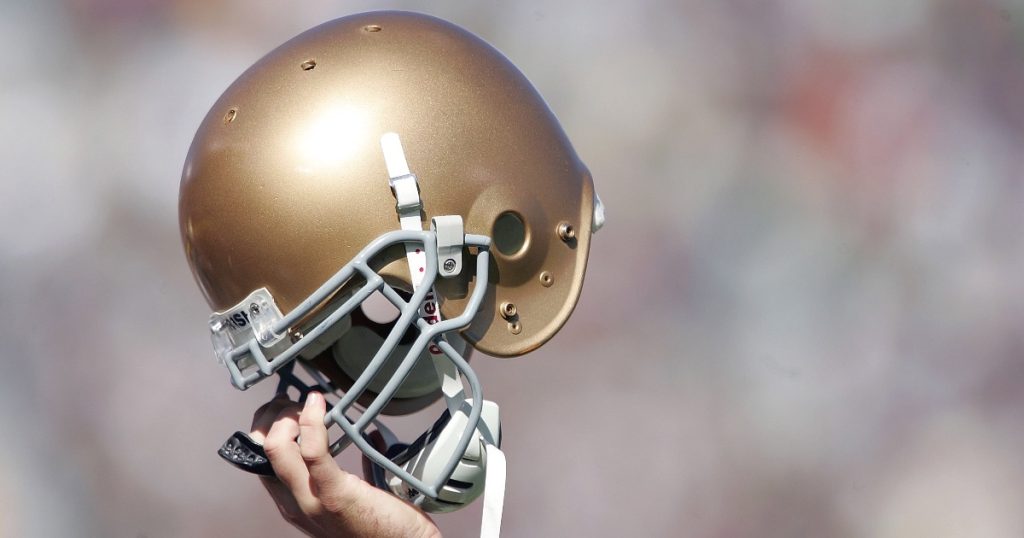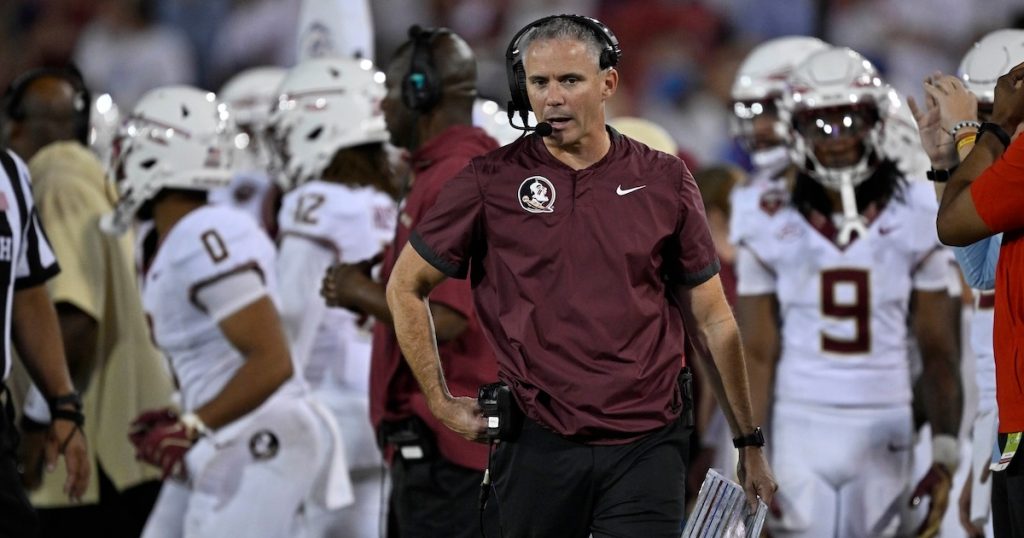Friday night marked a pivotal moment in the 2023 college football season. Watching the Georgia team, which has already secured a spot in the SEC Championship Game, battle through eight thrilling overtimes to defeat Georgia Tech at home was a wake-up call. It’s time to confront a hard truth: the SEC just isn’t as dominant this year as we’ve come to expect.
Rethinking SEC Dominance
Eight days ago, there were seven SEC teams still in the mix for the College Football Playoff. Despite each of them having two or three losses, discussions about their playoff viability seemed rational. After all, the SEC has long been touted as the best conference in college football. But now, we must ask ourselves: how valid is that claim this season?
The SEC’s Reputation at Stake
We’ve all heard the familiar talking points: How can we judge an SEC team’s performance when they’re constantly beating up on each other? Isn’t having two losses in the SEC akin to being undefeated in other conferences? And let’s not forget the historical dominance of the SEC over the past two decades.
But enough is enough. It’s time to stop using the past as a crutch. The SEC is propped up by “quality wins” and, even more frustratingly, “quality losses.” But how do we know that the conference isn’t simply a collection of average teams beating each other? What’s the most impressive win the SEC has this year?
Shifting Perspectives on Quality Wins
Let’s take a closer look at the SEC’s results. Georgia beat Tennessee, Tennessee beat Alabama, Ole Miss beat Georgia, and so on. The cycle continues, and it’s easy to get caught up in the logos on the helmets and the history behind each program. But does that truly reflect the quality of play this season?
Just last week, Ole Miss, once considered a national title contender, fell to a five-loss Florida team. This raises a crucial question: Are we still holding onto outdated perceptions of the SEC?
The Changing Landscape of College Football
In the era of NIL and the transfer portal, the recruitment landscape has shifted dramatically. While the SEC still attracts top talent, the disparity that once existed is no longer as pronounced. The days of Alabama and Georgia having second-string players who could start at most other programs are fading. This change has led to a more competitive environment, resulting in varied outcomes across the conference.
We’re creatures of habit, and it may take years for us to fully accept that beating Alabama and Georgia isn’t the same achievement it once was. These teams are still formidable, but they are no longer invincible.
What About the Other Conferences?
So why shouldn’t the ACC, with its own strong contenders, get three teams into the playoff? Why is Indiana facing scrutiny, while SEC teams with three losses seem to get a free pass? It’s time to reevaluate how we view these teams.
Consider Georgia Tech, a middle-of-the-road ACC team this year. They played Georgia closely on the road and lost in a nail-biting eight-overtime game. Shouldn’t that performance warrant more respect than some of the SEC’s lackluster outings?
Evidence of SEC’s Decline
For the first time since 2017, the SEC won’t have a Heisman Trophy finalist. There are no elite quarterbacks in the conference this season, and the best nonconference win belongs to Georgia’s blowout victory over Clemson. This lack of standout performances raises the question: what evidence do we have that the SEC deserves the benefit of the doubt from the College Football Playoff committee?
As we approach Rivalry Saturday, it’s crucial to reassess how many SEC teams should be in the 12-team playoff field. The data that once supported the SEC’s dominance is still there, but how relevant is it now?
Looking Forward: The Future of the SEC
The beauty of the new 12-team playoff system is that we’ll finally get answers. The SEC may still secure more playoff spots than it deserves, thanks to the committee’s longstanding bias. But as fans and analysts, we must challenge ourselves to look beyond the past.
What can we learn from this season’s results? Are we still allowing the SEC’s historical reputation to cloud our judgment? The time has come to embrace a new era in college football, one where the past doesn’t dictate the present.
Final Thoughts
As we continue to watch the college football landscape evolve, let’s remember that the SEC is still a strong conference, but it is not infallible. The narrative needs to shift. It’s time to recognize that the SEC’s grip on college football is loosening, and we should be open to considering the merits of other conferences.
So, as we gear up for the playoff discussions, let’s keep our eyes open and our minds clear. The SEC may have dominated for years, but this season, the evidence suggests it’s time for a change.





























